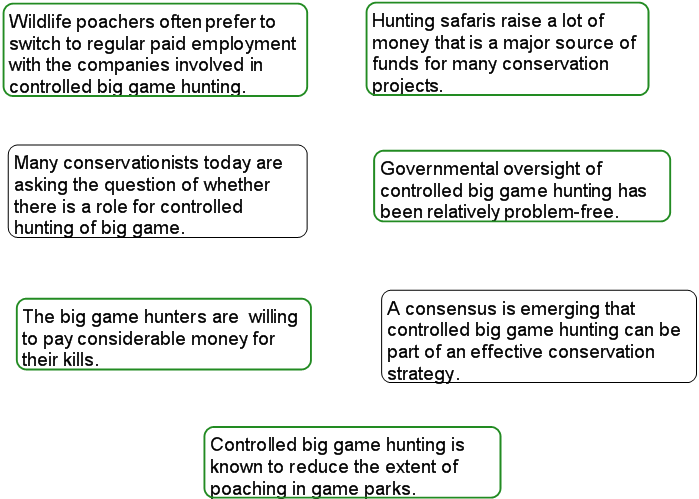The Science Of Scientific Writing Set C Paragraphs with something extra: points and tails Paragraphs that end with a bang! Using maps to write Point-final paragraphs Exercise 1 Exercise 2 Exercise 3 Further ideas on Point-final paragraphs Exercise 4 Paragraphs that are short, or have a tail Final Page.
OVERVIEW: The way to well-written science
PART I: Paragraphs and Sentences
SET A: Paragraphs: The Maps Behind Them
SET B: Paragraphs: Using Maps to Meet Readers' Expectations
SET C: Paragraphs with Something Extra: Points and Tails
SET D: The Generic Section: Expectations and Maps as Blueprints
SET E: Scientific Sections: The Methods and Results
SET F: Scientific Sections: The Discussion
SET G : Scientific Sections: The Introduction
SET H : Sentences
SET I : The Paper as a Whole
PART II: The Paper and its Sections
SET 1: Argument Parts
SET 2: Indicator Words
SET 4: Locating Arguments in Prose
SET 5: Rationale's Essay Planner
SET 6: Evidence in Arguments: Basis Boxes
Synthesis 1: Position-Early Paragraphs
Synthesis 2: Position-Final Paragraphs
Synthesis 3: Writing a Discussion I
Synthesis 4: Writing a Discussion II
Exercise 1
 In Exercise 1 you will "construct" a Point-final argument map, then a paragraph, from a set of supplied sentences
In Exercise 1 you will "construct" a Point-final argument map, then a paragraph, from a set of supplied sentences
First you must decide which sentence/s, if any, represent:
- A Framing Sentence
- A paragraph-concluding Point Sentence
- Introductory sentence/s (i.e. non-core sentences belonging to the Frame of Reference section)
Then arrange those sentences in a Point-final map as per the previously suggested format (see here).
1. Drag the image of the seven sentences below onto the Rationale Workspace, and then rearrange the individual sentences as per the above instructions. For the dragging to work, you must be viewing this page using Rationale's inline browser.
2. Then use the map as the basis for a Point-final paragraph. After you have copied the sentences from the map boxes, make sure to edit the text so that it reads smoothly.
3. Check your work against the model. If your map or paragraph differs from the model, try to understand why, and if you can't ask for assistance (if available). If you are submitting your work for feedback by an instructor, don't change your answer to fit the model. Your initial attempt at the exercise is more informative and will help the instructor to guide you. The model is meant to help you with future exercises.
NB: The model answer will open in a new window. Close the window when you're finished.
......
